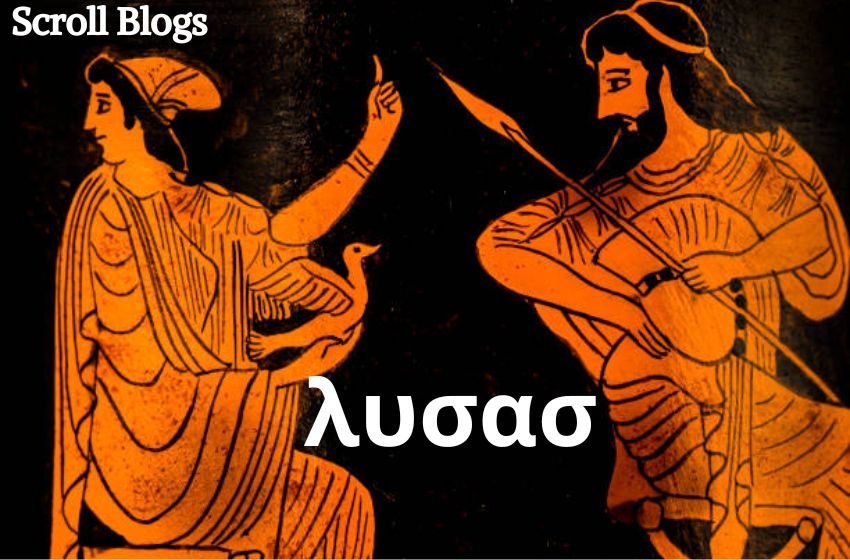Ancient Greek language and philosophy are replete with terms that encapsulate profound concepts, and one such term is λυσασ. This word, derived from the verb λύω, meaning “to loosen,” “to release,” or “to free,” holds deep cultural, philosophical, and practical significance. In this article, we will explore the various dimensions of λυσασ, its historical context, its applications in literature and everyday life, and its relevance in modern times. Join Scroll Blogs as we delve into the intricate layers of this fascinating concept.
The Historical Context of λυσασ
The term λυσασ finds its roots in ancient Greek society, where it was intertwined with the daily lives and philosophical musings of the people. In its most basic form, λυσασ comes from the verb λύω, which was used in various contexts such as untying knots, resolving disputes, and freeing captives. Over time, this term evolved to represent broader notions of release and emancipation, reflecting the Greek ideals of individual autonomy and societal unity.
λυσασ in Ancient Greek Literature
In ancient Greek literature, λυσασ holds a prominent place, appearing in the works of renowned poets and playwrights. For instance, poets like Sappho and Pindar used λυσασ to depict the release of emotions such as distress or love, capturing the profound and often intense human experiences. In epic tales and tragedies, λυσασ often symbolizes pivotal moments of liberation and transformation for characters, emphasizing the human quest for freedom and resolution.
Philosophical Dimensions of λυσασ
Philosophically, λυσασ is more than just a term; it embodies the ancient Greek pursuit of freedom and enlightenment. Philosophers like Socrates and Plato explored the concept of λυσασ in their teachings, advocating for the liberation of the mind from ignorance and the soul from worldly desires. This philosophical exploration highlights the timeless human aspiration for intellectual and spiritual freedom, making λυσασ a cornerstone of Greek philosophical thought.
Cultural Significance of λυσασ
In ancient Greek society, the concept of λυσασ extended beyond literature and philosophy, permeating various aspects of daily life. It was associated with acts of emancipation, such as freeing slaves or liberating cities from tyranny, symbolizing justice and social equity. The use of λυσασ in legal and social contexts underscores its importance in maintaining societal order and promoting individual rights.
λυσασ in Modern Greek Language and Literature
The relevance of λυσασ transcends ancient times, continuing to hold significance in modern Greek language and literature. Contemporary writers and poets use λυσασ to explore themes of personal and political freedom, emotional release, and resolution of conflicts. In everyday conversations, λυσασ is often used to convey a range of emotions, from relief and understanding to frustration and realization, reflecting its dynamic and expressive nature.
Mathematical and Scientific Applications of λυσασ
Beyond the realms of language and culture, λυσασ has found applications in modern mathematics and science. In mathematics, λυσασ refers to the process of solving equations and problems, representing the journey from complexity to clarity. In computer science, λυσασ is crucial for developing algorithms and programming solutions, driving advancements in technology and artificial intelligence. This technical application of λυσασ highlights its universal significance in problem-solving and innovation.
The Role of λυσασ in Everyday Life
In everyday life, the concept of λυσασ is ever-present, reflecting the human desire for resolution and freedom. Whether it’s resolving personal conflicts, finding solutions to challenges, or achieving emotional release, λυσασ encapsulates the essence of human resilience and ingenuity. The term’s versatility and depth make it a powerful tool for communication and expression in both personal and social contexts.
The Future of λυσασ in Contemporary Discourse
As we look to the future, the principles embodied by λυσασ continue to resonate in contemporary discourse. In fields such as psychology, sociology, and political science, the idea of release and resolution remains relevant, guiding our understanding of human behavior and societal dynamics. The enduring legacy of λυσασ in modern thought underscores its timeless relevance and its potential to inspire future generations in their quest for freedom and enlightenment.
Conclusion:
In conclusion, the concept of λυσασ, with its rich historical roots and multifaceted applications, offers a profound insight into the human experience. From its origins in ancient Greek language and literature to its philosophical, cultural, and modern-day significance, λυσασ embodies the universal quest for freedom, resolution, and enlightenment. As we navigate the complexities of contemporary life, the timeless principles of λυσασ, as explored by Scroll Blogs, continue to guide and inspire us, reminding us of the enduring power of release and transformation.
FAQs about λυσασ
What does λυσασ mean in Greek?
λυσασ is derived from the Greek verb λύω, meaning “to loosen” or “to untie.” It signifies release, liberation, or resolution.
How is λυσασ pronounced?
λυσασ is pronounced as “lee-sas.”
What are some related terms associated with λυσασ?
Related terms include λύω (loo-no), λυθηκείς (lee-thi-kees), and concepts related to release, liberation, and resolution.
In what literary works and poetic expressions can λυσασ be found?
λυσασ has been utilized across various genres of Greek literature, including epics, tragedies, and lyric poetry. It often symbolizes the alleviation of physical or emotional burdens.
How does λυσασ apply to modern contexts like mathematics and computer science?
In mathematics, λυσασ refers to solving equations and problems, while in computer science, it is crucial for developing algorithms and programming solutions.

